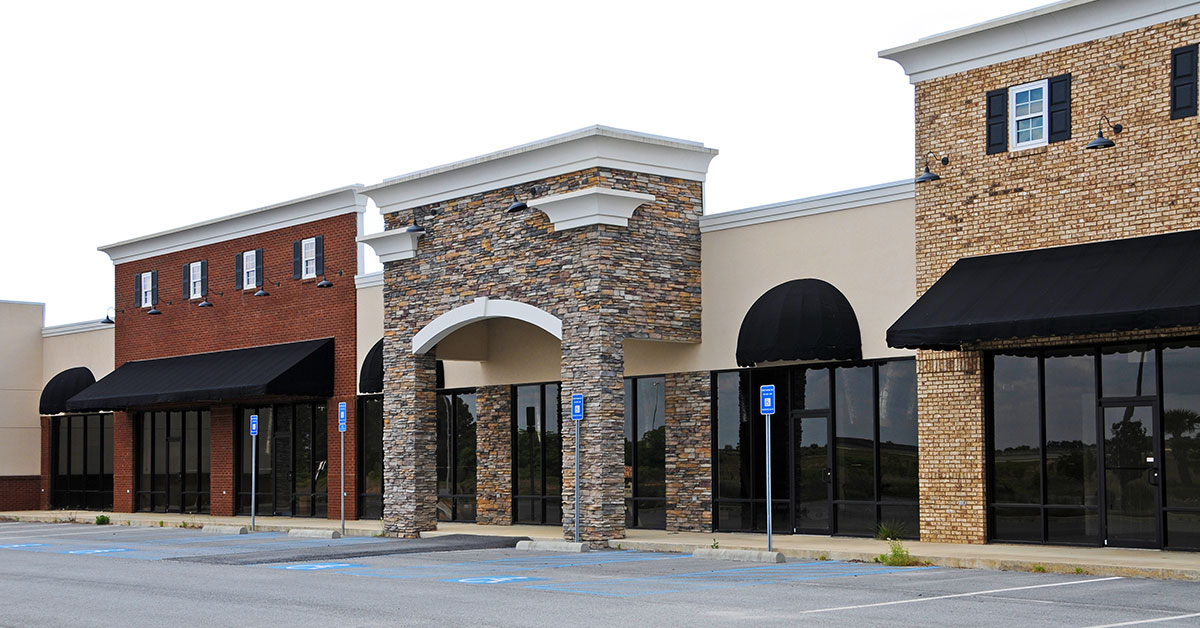
Types of Commercial Real Estate Loans
In the dynamic realm of commercial real estate, securing the right financing can be the linchpin that transforms a vision into reality. Whether you're a seasoned property investor or a budding entrepreneur seeking to expand your business operations, it is crucial to comprehend the diverse landscape of commercial real estate loans. These financial instruments open doors to opportunities, enabling you to acquire, develop, or refinance a wide range of commercial properties. Unlike their residential counterparts, commercial loans come with unique complexities and considerations that are vital to grasp. In this comprehensive guide, we will explore the various types of commercial real estate loans and delve into their distinctive features.
Understanding Commercial Real Estate Loans
Commercial real estate loans are specialized financial tools designed to support businesses and investors in acquiring, developing, or refinancing commercial properties. Vital for economic growth, these loans are instrumental in facilitating property transactions, fostering business expansion, and creating job opportunities. Key players in this financial arena include banks and credit unions, which provide the necessary funding for commercial real estate transactions.
Commercial vs. Residential Real Estate Loans
Commercial real estate loans are quite different from residential ones. While residential loans often focus on the borrower's credit, commercial loans prioritize the income potential of the property. These loans are tailored exclusively for business needs, supporting activities like leasing office spaces, buying land for new businesses, or renovating commercial properties.
With tougher terms and interest rates reflecting specific risks tied to commercial properties, these loans often include a balloon payment at the end, unlike fully amortized residential loans. Navigating these details requires expertise, highlighting the need for careful consideration by both borrowers and lenders in commercial real estate transactions.
Types of Commercial Real Estate Loans
Traditional Loans
Traditional commercial real estate loans come in various forms, each serving distinct purposes. The commercial mortgage provides funding for purchasing or refinancing commercial properties and offers flexibility with fixed or adjustable interest rates. Construction loans are tailored for new construction projects, ensuring developers have the necessary financial support from groundbreaking to completion.
Another essential category is bridge loans, addressing short-term financing gaps during property acquisition or redevelopment. These loans act as a financial bridge, offering businesses flexibility in navigating transitional phases. Together, commercial mortgages, construction loans, and bridge loans form a versatile toolkit, supporting businesses and investors in diverse commercial real estate endeavors, from property acquisition to strategic development.

Government-Backed Loans
Government-backed loans are vital for businesses in commercial real estate. Small Business Administration (SBA) loans offer favorable terms for small enterprises to acquire or expand commercial properties. In rural areas, USDA Business and Industry (B&I) loans support property improvement, contributing to economic development. HUD/FHA loans, insured by the Department of Housing and Urban Development or the Federal Housing Administration, provide businesses with accessible financing for commercial property acquisition or development, bolstering growth and sustainability.
With more lenient qualification criteria, these loans provide businesses with opportunities to access financing and facilitate the acquisition or development of commercial properties. Together, these government-backed loan programs enhance accessibility to financing, contributing to the growth and sustainability of businesses across diverse sectors and geographic locations.
Commercial Real Estate Lines of Credit
Commercial real estate lines of credit offer tailored financing solutions for businesses. Revolving lines of credit provide flexibility with funds that can be accessed and repaid repeatedly within a predetermined limit. This dynamic option is ideal for managing ongoing projects and adapting to fluctuating financial needs.
In contrast, non-revolving lines of credit offer a structured approach with fixed terms and defined repayment schedules, suitable for businesses with specific and stable financing requirements. Whether choosing flexibility or stability, businesses can leverage these lines of credit to meet their unique needs.
Hard Money Loans
Hard money loans serve as a rapid and accessible financing option in commercial real estate, offering short-term, high-interest loans when traditional avenues are unavailable. These loans are sought after for their quick approval processes and are secured by the underlying real estate asset, making them appealing to investors in need of swift funding solutions. Typically used for time-sensitive real estate investments, such as property acquisitions or renovations, hard money loans prioritize speed and accessibility over the stringent criteria of traditional lenders, providing a niche financial tool for investors navigating dynamic and urgent scenarios in commercial real estate.
Mezzanine Financing
Mezzanine financing stands out as a hybrid financial instrument that blends elements of both debt and equity to facilitate funding for real estate projects. This form of financing fills a unique niche, often coming into play when traditional loans and equity capital fall short of meeting the financial requirements of a project. In mezzanine financing, lenders provide a subordinate loan that sits between the senior debt and equity in the capital structure. This position entails a higher level of risk but also offers higher potential returns, reflecting the hybrid nature of mezzanine financing.
Eligibility and Qualification
When applying for a commercial real estate loan, lenders review critical factors such as credit history, property details, and the loan-to-value ratio. Essential documentation, including financial statements, business plans, and property appraisals, is required for a comprehensive application. To improve your overall eligibility, focus on improving creditworthiness, building financial reserves, and making informed property selections.
Following these steps and providing all the necessary documents not only meets what lenders are looking for but also puts applicants in a strong position to secure the commercial real estate financing they're after.
The Loan Application Process
Securing a commercial real estate loan involves a structured process. Applicants start by submitting a comprehensive loan application that details the purpose, borrower, property, and proposed financial structure. Following this, the process requires providing supporting documentation, including financial statements, business plans, and property appraisals. These not only corroborate the details in the application but also play a crucial role in the lender's due diligence process.
A standout component during this process is the business plan. It's not just a formality; a well-prepared business plan is a persuasive tool that allows applicants to effectively communicate their vision to lenders. It delves into the goals of the commercial venture, financial projections, and the expected impact of the loan, demonstrating to lenders that the borrower has a clear and viable strategy for managing and repaying the funds.
As the application progresses, the approval timeline varies. Some loans move swiftly, while others, especially those with complex transactions, may take longer. Understanding this variability helps applicants set realistic expectations. A meticulously prepared application, backed by comprehensive documentation and a compelling business plan, enhances the likelihood of a smoother approval process.
Key Considerations and Tips
When exploring commercial real estate financing, it is essential to consider the following key factors:
- Interest Rates and Terms: The impact of interest rates and terms on the overall financial burden cannot be overstated. Securing favorable terms aligned with your financial strategy is crucial for a successful financing outcome.
- Loan-to-Value (LTV) Ratio: Understanding the LTV ratio is essential, as it directly influences the available funding for your commercial venture. Striking a balance between a reasonable LTV ratio and your project's financial needs is necessary.
- Prepayment Penalties and Fees: Scrutinizing prepayment penalties and fees is crucial, as they can significantly impact the overall cost of the loan. Thorough comprehension of these aspects is necessary to avoid unexpected financial implications.
- Type-specific Risks and Benefits: Recognizing that each type of commercial real estate loan carries its own set of risks and benefits is another important consideration. Whether opting for traditional loans, government-backed options, or alternative financing, a nuanced understanding of specific features and potential drawbacks is vital to make the most informed decision for your unique needs.
Seeking professional advice is recommended when navigating the ins and outs of commercial real estate. For personalized assistance and expert guidance in your commercial real estate financing journey, contact our experienced Commercial Lending team at Community First Credit Union today!
Learn More About Business Banking
- How to Open a Business Deposit Account
- Should I Open a Business Credit Card for my Startup?
- Opening an Account for a Small Business
- 3 Things to Look for in Business Banking
- Commercial Real Estate Loans
- The Five Cs of Commercial Lending









